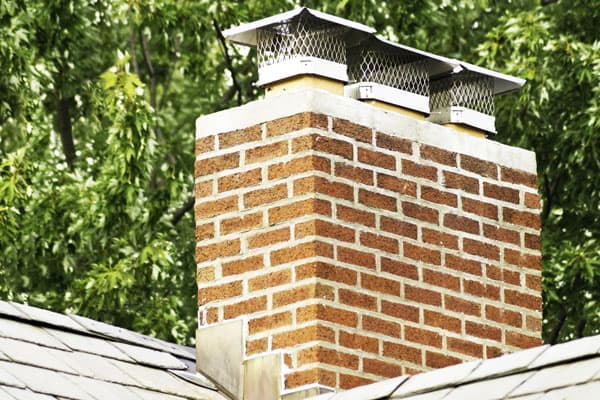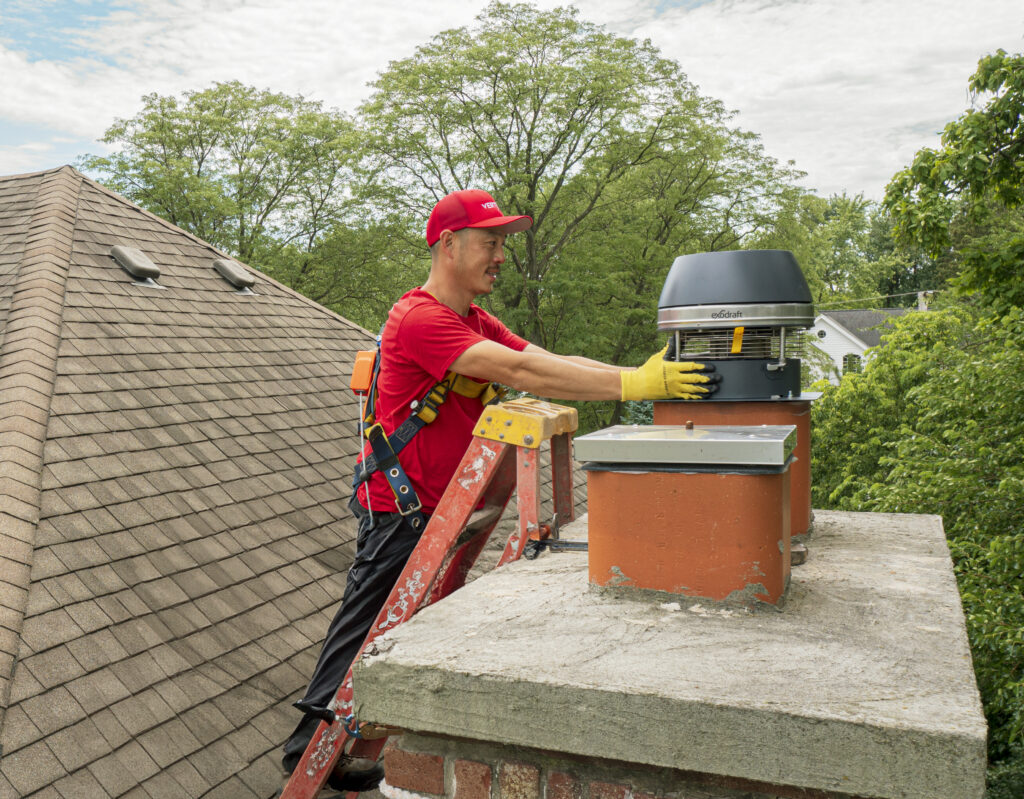

Here are a few tips to pick out the right cap for your chimney.
Material
There are few material options to choose from for a new chimney cap. The most common materials that chimney caps are made from are: galvanized steel, copper, or stainless steel. Galvanized steel isn’t as durable as the other material choices, but they’re the most cost effective. Stainless steel caps are a mid-range option with improved quality and durability. Cooper chimney caps will be the most expensive, but they offer a different look with a higher threshold of aesthetic to the exterior of your home.Know Your Chimney Style
The style of chimney you have matters when it comes to picking out a cap. Brick and stone chimneys are called masonry chimneys. There are also factory built metal chimneys, which are simply flues consisting of metal pipes, either aluminum or stainless steel, that stick out of the roof. Then there are chimneys that don’t fall into either category that are specially constructed. You’ll need to know exactly what type of chimney you have, the kind of flue that it has, and its measurements and shape.Single Flue Masonry Chimneys
Masonry chimneys with a single flue might require a square, rectangular, round, or oval cap depending on the flue’s shape.Masonry Chimneys with Flexible Liners
If your masonry chimney has a flexible metal liner, you’ll need to get a cap that’s slip-on. Flexible liners are softer, so a standard cap won’t fit over the opening.Multi-Flue Masonry Chimneys
Masonry chimneys with more than one flue are called multi-flue chimneys. These chimneys will need a top-mounted chimney cap, no matter if the flues are extended beyond the crown of the chimney or not.Factory Built Metal Chimneys
These chimneys come from kits that a homeowner can assemble for products like wood-burning stoves. Single-wall metal chimneys will take chimney caps that attach to inside the flue liner or ones that fasten to the exterior. Some factory-built chimneys are double-walled, a flue-within-a-flue. For this style, you’d need a chimney cap designed to fit a double-wall pipe. Similarly, a triple-wall metal chimney pipe requires one specifically built for that style.Special Chimney Cap Styles
Downdrafts might be more of problem for you if you happen to live in a particularly windy area. You might notice that you need something extra to prevent downdrafts. Fortunately, there’s a chimney cap just for that. Draft-increasing chimney caps, as their name suggests, improve drafts, forcing the smoke inside the chimney to move upward. And good news for you, the stronger the gust of wind that blows on this cap, the better updraft you will have. If you have an older masonry chimney that is lacking a damper, you’ll likely begin to notice air escaping when don’t have a fire burning in the fireplace. You’ll also notice higher energy bills because of this poor energy efficiency. A cap and damper combination piece can aid in fixing this issue because this cap will mount on the top of the flue and is controlled by a cable that runs down the chimney. You can open and close it by using a lever on the fireplace wall, so you’ll know for sure when the chimney is being exposed to a draft.
The Advantages of a Chimney Cap
If your home has a chimney then you’ll need a cap if it doesn’t have one already. If you don’t use your fireplace a whole lot, you’ll still need a cap because of its many advantages. Here’s what having a chimney cap will do:- Air flow: chimney caps ensure that you have strong, reliable draft so you can enjoy your fire, not the smoke.
- Prevent damage, protect the masonry: a chimney cap keeps out moisture from rainwater and snow. Homeowners know that moisture is always a bad sign, especially in cold, damp places like the inside of your chimney. Too much water exposure can seep into the seams of the masonry, and before you know it, your chimney is crumbling apart. Talk about an expensive repair.
- Prevent chimney fires: caps keep out debris from nests, critters, and nearby trees. Blockages are incredibly dangerous and if your chimney can’t channel air in and out, you’re at risk for a chimney fire.
